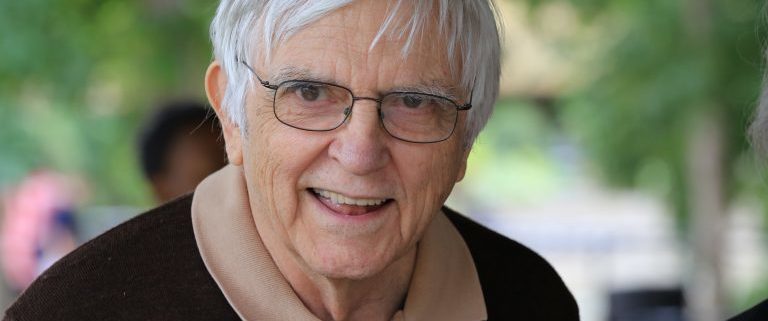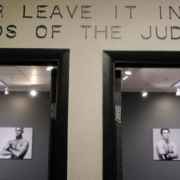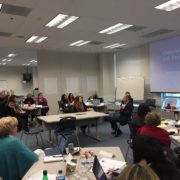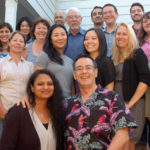1996: Stu Webb’s View of Collaborative Law
Recently, Forrest “Woody” Mosten shared notes from a 1996 meeting he had with fellow innovative family law professionals. In attendance at the meeting were Stu Webb (who created the concept of collaborative family law), Woody, Jody Mosten, Bill Howe, Ed Sherman, Cheryl Woodard, Susan Cameron, Ed Cameron, Carol Farr, Peggy Williams, Hillis Williams, and Lowell Halverson.
The “Creative Lawyers Meeting” took place over two days, September 6-7, 1996. Included in the notes were Stu Webb’s early description of the purpose and process of collaborative law. The description from those notes are reproduced below, lightly edited for clarity:
Stu Webb has had 30 years of practice. After the first 20 years as a family law attorney, he was sick of the schizophrenic practice of family law. He almost quit. Instead, he decided to go down with a bang and started by working with other good lawyers with whom he had a good relationship to represent clients without going to trial. He termed these attorneys “Collaborative Lawyers.”
At first, he did find he had a few cases that went to trial. That was a big mistake – it ruined the relationship with the opposing attorney. So he made a new rule: no going to trial. If a client needs to go to trial, he helps find a good litigator. He has worked to develop good relationships with lawyers – and he now has relationships with other Collaborative Lawyers. This is a new way to practice law and all the lawyers are dedicated to making it work. This was new for Stu: he had to drop everything he had previously learned to do.
Now, he does collaborative law with two lawyers represent two clients. They put the problems in the center: “Keep the space clean–avoid the negative energy. It is a nebulous concept but use humor, get very serious, and there is an energy.” Stu gave us a very personal thing he had to write some time ago, “The Serenity Space.”
Stu’s innovation of no going to trial sprung a movement in divorce work to help families move forward in their lives in a better way. Tens of thousands of professionals have been trained to offer collaborative services, and the International Academy of Collaborative Professionals has members from at least 24 countries who work with families.
Adam B. Cordover is a Collaborative Lawyer and Florida Supreme Court Certified Family Law Mediator. He is co-author with Forrest Mosten of Building A Successful Collaborative Family Law Practice and teaches attorneys, mental health professionals, financial professionals, and mediators how to help families via the collaborative process through the Tampa Bay Collaborative Trainers.





